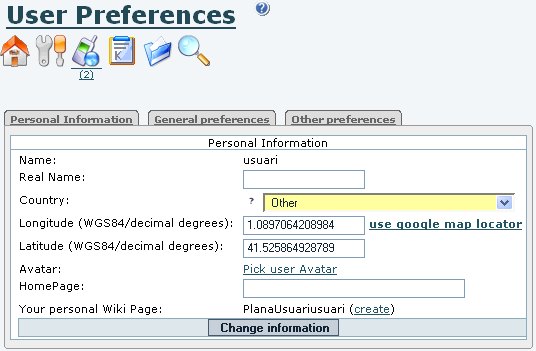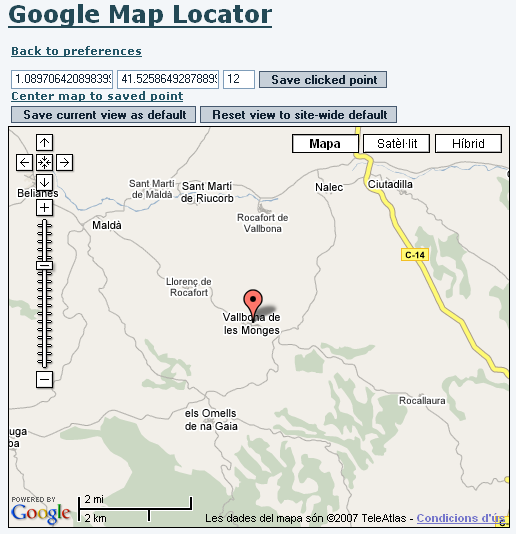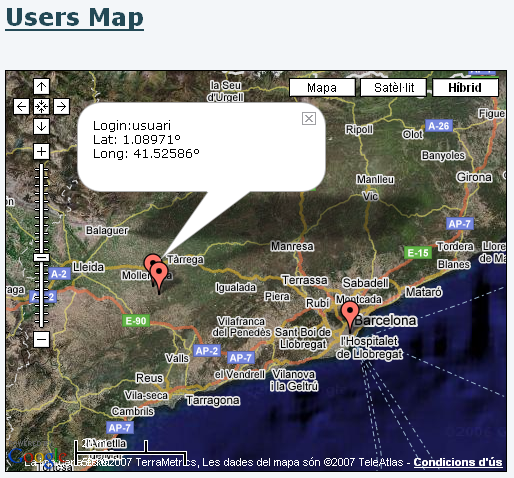Historical overview of Maps integration in Tiki
Later on, Google Maps arrived, providing an easy to use map integration to regular web sites, even without having to manage mapping data. Thus, Google Maps specific code was added to Tiki, which was convenient for a lot of people.
Then, after a community discussion, starting in Tiki7, OpenLayers (another option was Mapstraction) was added as a native way to handle maps, which permits the use of tiles from Google Maps, Bing Maps, OpenStreetMap (which is like Wikipedia but for maps), MapQuest (which serves OpenStreetMap maps), etc.
The Cartograf project further improved maps in Tiki8, Tiki9, Tiki10 and Tiki11. Many features were added, including Street View support.
In Tiki12, all Google Maps specific code was removed in favor of using OpenLayers, so Google Maps is accessible via the OpenLayers Google Layer. In addition the Natural Access project (no longer active) added further new capabilities to upload any existing line and polygon data as files and to be able to further customise how data objects were shown on the underlying map layer.
In Tiki15 all MapServer-specific code has been removed. Also OpenLayers 2.x continues to be used for the map layer and integration with Tiki to allow editable map objects to be overlaid on the map layer but experimentation has started with the integration of OpenLayers 3.x.
In Tiki20 integration with OpenLayers 3.x and higher was improved, and more features were exposed through the corresponding PluginMap parameters, as well as adding new tilesets, some of them using vector tiles instead of just the usual raster tiles.
Map-related documentation, as of summer of 2019, still makes reference to the different historical approaches but as it continues to be improved the older methods that are no longer used will be deprecated/removed. Volunteers to help with documentation improvement : please contact marclaporte at tiki dot org
Google Maps User
As explained before, the main use for Google Map is to provide a way to store geolocations from user input easily, and provide an easy display of such a map.
Set up your coordinates
You can set up the coordinates of your location through "MyTiki > Preferences > Personal Information", as Longitude and Latitud (in WGS84/Decimal degress).

If you don't know them, you can use the "Google Map Locator" link instead (tiki-gmap_locator.php?for=user)

There, you have some buttons to make commons actions related to the Google Map for that user or for the whole tiki:
| Link | Action
|
| Back to preferences | Go back to your preferences screen |
| Save clicked point | Save that point (Longitude, Latitude, and scale fields, on the left of the button) |
| Save current view as default | Save that view as the default for that user |
| Reset to site-wide default | Save that view as the default for the whole tiki site |
At last, you can see the users map through "tiki-gmap_usermap.php" (hibrid map in the screenshot: Satellite + Geographic Map):
